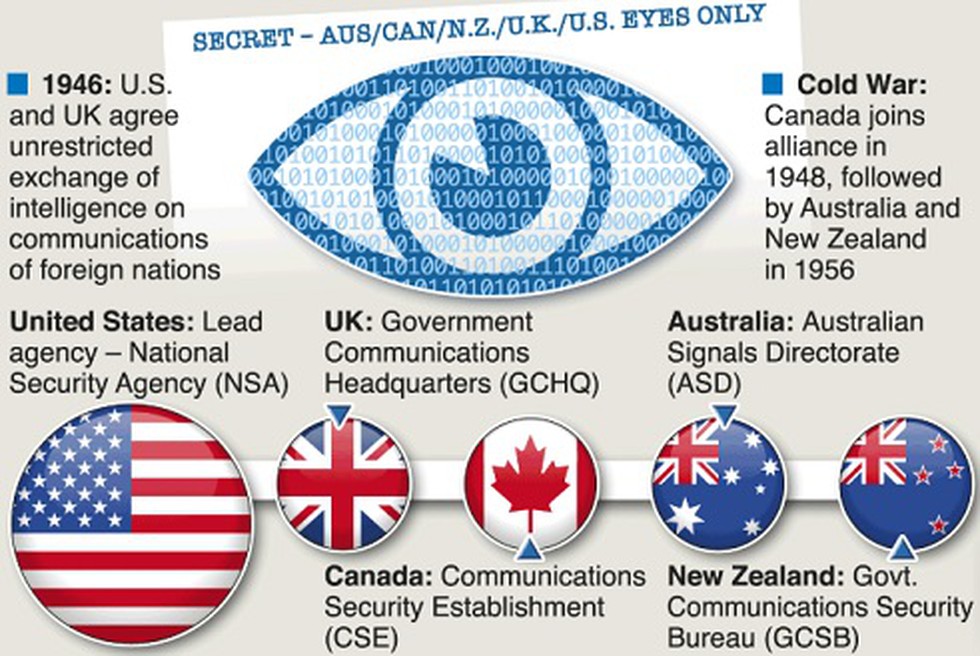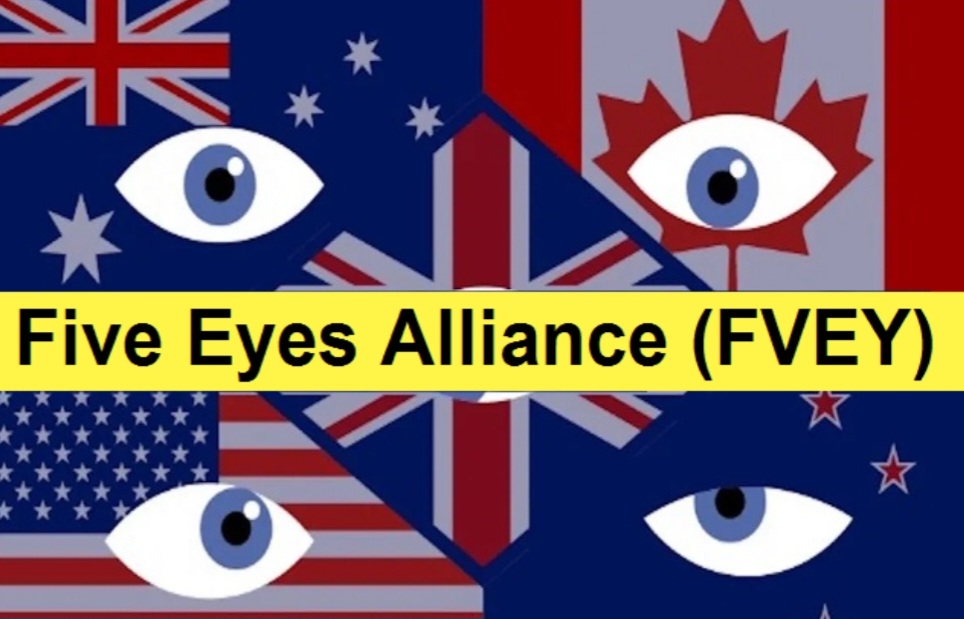Introduction
The "Five Eyes" alliance, formed during World War II and one of the world's most powerful intelligence partnerships, is currently facing an unprecedented internal crisis. This alliance of the US, UK, Canada, Australia and New Zealand is in serious turmoil due to sweeping changes in US foreign policy. In particular, the policies adopted during Donald Trump's second term have challenged the stability of this alliance. This crisis is not limited to the Five Eyes but is also affecting the collective security structure of Western countries. In such a situation, it becomes necessary for India to assess this situation and adapt its intelligence diplomacy to the new global scenario.
Five Eyes: Historical Background and Evolution
The Five Eyes alliance began as an agreement signed between the US and Britain during World War II, aimed at intercepting and decoding enemy communications. The bilateral agreement was formalised in 1946, and later included Canada in 1948 and Australia and New Zealand in 1956. During the Cold War, the alliance played a key role in monitoring the activities of the Soviet Union and countries under the Warsaw Pact. After 9/11, its scope expanded to terrorism and cybersecurity. In recent years the Five Eyes alliance has focused on China, particularly as cybersecurity concerns have been raised through companies such as Huawei.
Recent Developments and Challenges
The Five Eyes alliance is currently facing challenges due to changes in U.S. foreign policy. Under the leadership of Donald Trump, there have been shifts in the way the U.S. engages with its international partners. Some key developments include:
1. US-Canada trade dispute - The aggressive trade policies of the Trump administration have shocked Canada. He further escalated the dispute by talking of making Canada the "51st state of America".
2. Greenland dispute - Trump's attempt to merge Greenland from Denmark with the US was unacceptable to European allies.
3. Bitter attitude towards Britain - Trump supporters have criticized Britain's "woke politics" and the policies of the Labor government. In a meeting held in Washington, US Senator J.D. Vance created a new controversy by calling Britain the "first Islamic nuclear power".
4. The newly appointed officials of the Trump administration - Tulsi Gabbard as the Director of National Intelligence and Kash Patel as the FBI Director - have raised concerns among traditional allies. They believe that Trump's uncertain approach to intelligence sharing can affect the stability of Five Eyes.
5. Changes in U.S. Foreign Policy
The U.S. government has taken a new approach to its relationships with countries like Russia and Ukraine. There have also been discussions about the role of alliances such as NATO and the European Union. These changes have led to differences in opinions among Five Eyes members.
6. Trade and Economic Relations
Trade policies have become a source of tension. The U.S. and Canada, long-standing trade partners, have faced disagreements over trade regulations. Discussions about border security and trade policies have led to speculation about Canada’s role in the alliance, although officials have denied any major changes.
7. Cooperation in the Indo-Pacific Region
Despite challenges, the Five Eyes nations continue to expand their security presence in the Indo-Pacific region. AUKUS, a new security partnership between Australia, the U.K., and the U.S., is an example of this. This agreement focuses on military cooperation, particularly in developing nuclear-powered submarines. Japan has also increased its intelligence cooperation with Five Eyes nations in recent years.

Future of Five Eyes and possible split
The US role in Five Eyes has always been crucial, but in the current scenario, this alliance is heading towards a deeper split. Speculations by Trump's advisers about removing Canada from Five Eyes, a tough stance towards Britain, and criticism of the liberal components of Five Eyes by the American right wing are raising questions about the future of this alliance. If the Trump administration moves towards reorganizing Five Eyes, it is possible that the EU and NATO take advantage of this situation to develop a separate intelligence network.
Strategic opportunities for India
The crisis in Five Eyes presents several possibilities for India:
1. Expansion of intelligence partnership – Instability within Five Eyes can provide India with opportunities to strengthen its intelligence capabilities and deeper cooperation with other friendly countries.
2. Role in Indo-Pacific – India can improve its strategic position amid discussions of expanding AUKUS (military alliance between the US, UK and Australia).
3. Technological security – Amid security concerns like Huawei and 5G, India should strengthen cybersecurity and technical intelligence partnerships with Western countries.
4. Possibility of new alliances – If divisions in the Five Eyes deepen, India can play an important role in building new multilateral intelligence partnerships.
5. Digital and artificial intelligence cooperation – India should leverage its technological prowess to work closely with the Five Eyes and other friendly countries in the field of digital surveillance and artificial intelligence (AI)-based intelligence analysis.
6. Cybersecurity cooperation – Amid rising cyber-attacks and digital wars, India should take the initiative to share cybersecurity measures with Five Eyes countries.
Conclusion
The current crisis in the Five Eyes alliance is a result of the changing policies of the US. If this crisis deepens further, it can bring about sweeping changes in the global security architecture. This is an opportunity for India to take advantage of this situation and reorganise its intelligence diplomacy. India should increase cooperation with its traditional partners and evaluate the possibilities of new strategic alliances. This is a crucial time to strengthen India's position amid the rapid changes in global geopolitics.
| Main question: Evaluate the potential consequences of the U.S.'s changing stance towards traditional allies like Canada and the UK on the stability of Western security alliances. How should India navigate its strategic partnerships in this context? |









